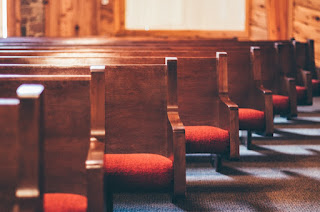A huge part of the story is how our culture is drawn to the cult of celebrity. This isn't a Christian problem, it's a cultural problem. But when it affects Christians it causes huge churches to build up around charismatic, celebrity pastors. Like Mark Driscoll and Mars Hill.
The problem of celebrity pastors in evangelicalism has been widely commented on. But there's a related issue here that, in my estimation, needs more attention.
As I diagnosis the situation the issue isn't just celebrity. Yes, that's a problem, but I don't think it's the decisive issue. The real issue is power.
Here's what you notice about these pastor and church failures, like with Mark Driscoll at Mars Hill and Bill Hybels at Willow Creek: They were the founding pastors.
Celebrity, yes, is morally treacherous. But celebrity combined with the power of being the founding pastor is a recipe for disaster. The church becomes the property of the founding pastor. It is THEIR church, which places the membership and staff in a very asymmetrical, disempowered relationship with the founding pastor. And that's where things start to go sideways. Not with the popularity of the pastor, but with their power.
So it's here where I want to sing the praise of old churches. The church I attend is over a hundred years old. And over our history we've had some very talented and charismatic pastors. But given the age of the church, these pastors have come and they have gone. The church, however, remains. The church was here long before the pastor arrived, and the church will be here long after the pastor departs. This balances out the power relation between the church and the pastor. The church hires the pastor. The pastor doesn't own the church. To be sure, old churches can be slow and resistant to change upon hearing the vision of the new, incoming pastor. But that sluggishness and institutional resistance is a sign of more balanced power relations between the pastor and church. Change in an old church can't happen dictatorially. Change has to come relationally, with time, conversation, and trust. Hard work, yes, but healthy work.
All that to say, old churches have more power than churches founded by the guy on the stage. And this, I think, is the really critical dynamic that isn't getting talked about as much. It's not the celebrity of the pastor that's the problem, but their power as the founder.


